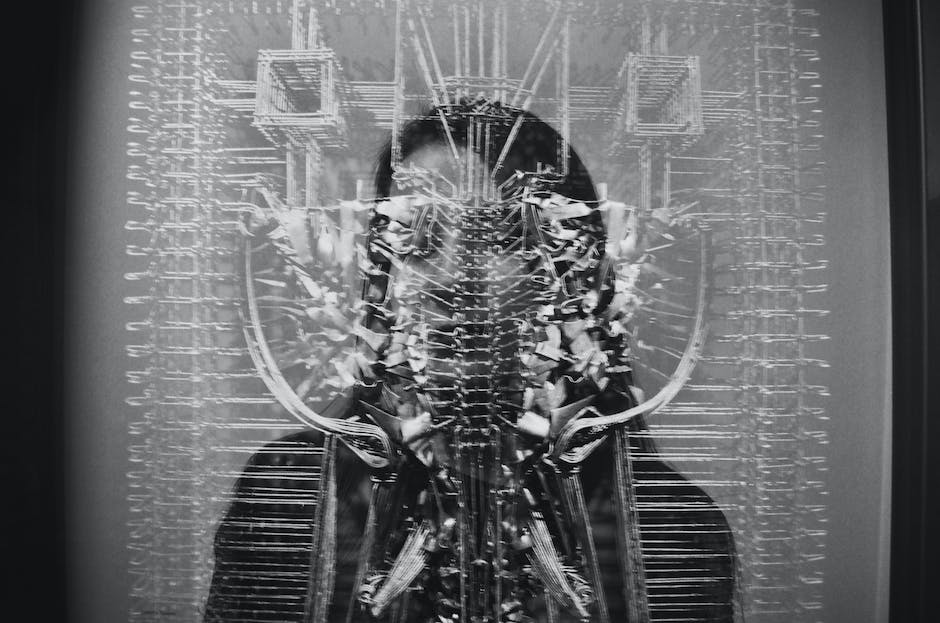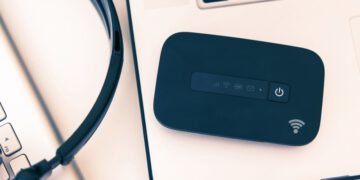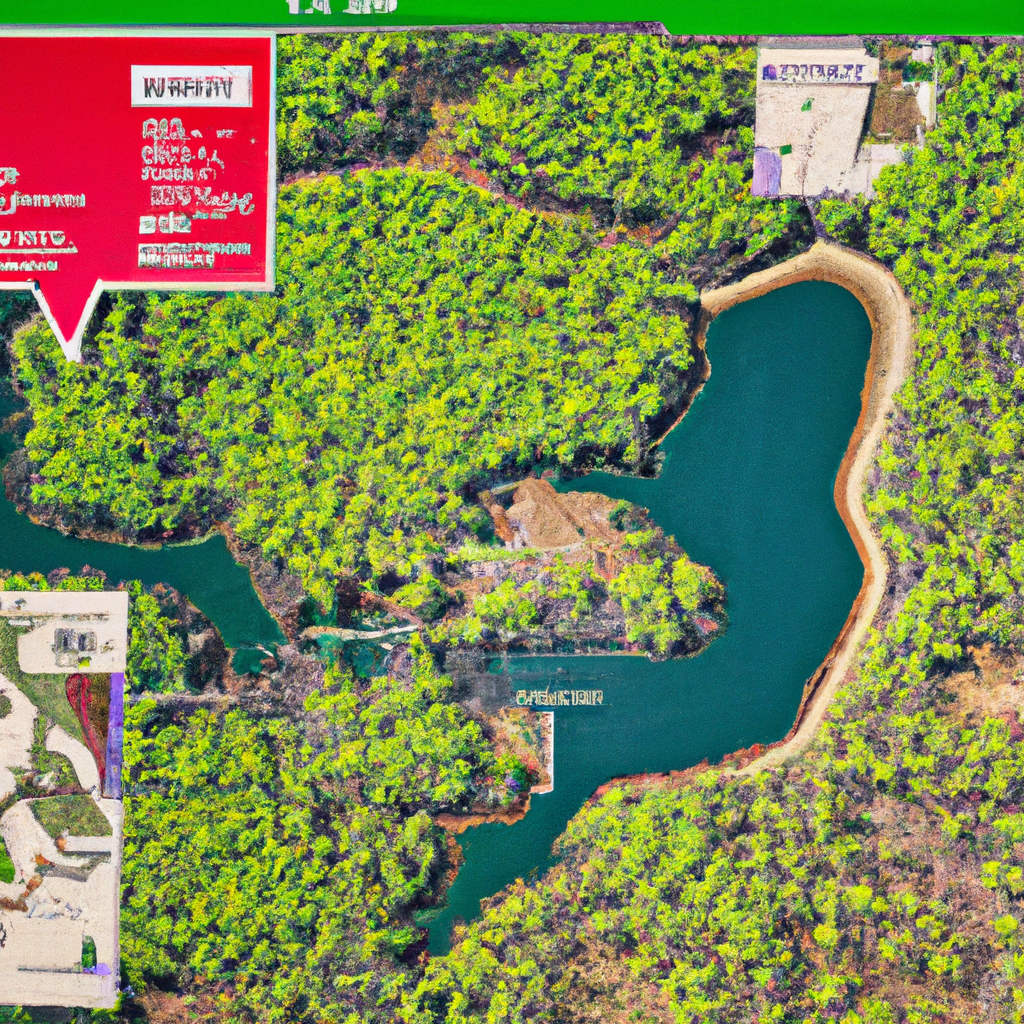-
Table of Contents
The Dangers of Using ‘123456’ and Other Common Passwords

In today’s digital age, where almost every aspect of our lives is connected to the internet, the importance of having a strong and secure password cannot be emphasized enough. Yet, despite the constant warnings and reminders, many people still choose to use weak and easily guessable passwords. This is a dangerous practice that puts their personal information and online accounts at risk. In this article, we will discuss five commonly hacked passwords that you need to stop using immediately.
One of the most commonly used and easily hacked passwords is ‘123456’. It may seem like a convenient choice, as it requires minimal effort to remember, but it is also the first password that hackers try when attempting to gain unauthorized access to an account. Using such a predictable password is like leaving your front door wide open for anyone to walk in.
Another frequently used password is ‘password’. Yes, you read that right. Many people still opt for this unimaginative and easily guessable choice. It’s like handing over the keys to your online kingdom to hackers on a silver platter. If you are using ‘password’ as your password, it’s time to rethink your approach to online security.
‘qwerty’ is another password that is shockingly common. It is derived from the first six letters on the top row of a standard keyboard. While it may seem like a clever choice, it is anything but. Hackers are well aware of this common pattern and will exploit it without hesitation. Using ‘qwerty’ as your password is akin to leaving your car unlocked with the keys in the ignition.
Believe it or not, ‘123456789’ is also a popular choice among those who prioritize convenience over security. This sequence of numbers may appear random, but it is far from it. Hackers are well aware of this common pattern and will try it without hesitation. Using ‘123456789’ as your password is like leaving your wallet unattended in a crowded place.
Last but not least, we have ‘admin’. This password is often used by individuals who are in charge of managing websites or online platforms. While it may seem logical to use ‘admin’ as the password for an administrative account, it is also the first password that hackers will try when attempting to gain control of a website or platform. Using ‘admin’ as your password is like leaving the keys to your castle in plain sight for anyone to grab.
In conclusion, using weak and easily guessable passwords is a dangerous practice that puts your personal information and online accounts at risk. The passwords discussed in this article, such as ‘123456’, ‘password’, ‘qwerty’, ‘123456789’, and ‘admin’, are commonly hacked and should be avoided at all costs. It is crucial to prioritize online security by using strong and unique passwords for each of your accounts. Remember to include a combination of uppercase and lowercase letters, numbers, and special characters. By doing so, you can significantly reduce the risk of falling victim to hackers and protect your valuable online assets.
Why ‘password’ and Similar Weak Passwords Are a Hacker’s Dream
In today’s digital age, where almost every aspect of our lives is connected to the internet, the importance of having a strong and secure password cannot be emphasized enough. Yet, despite the countless warnings and horror stories of data breaches and identity theft, many people still continue to use weak and easily guessable passwords. One of the most commonly used and easily hacked passwords is, believe it or not, ‘password’ itself.
Using ‘password’ as your password is like leaving your front door wide open for hackers to stroll right in. It’s the equivalent of having a lock on your door but leaving the key under the doormat. Hackers are well aware of this common practice, and they exploit it to gain unauthorized access to personal accounts, sensitive information, and even financial data.
Another commonly hacked password is ‘123456’. It may seem like a convenient and easy-to-remember choice, but it’s also a hacker’s dream come true. It takes mere seconds for a hacker to crack this password and gain access to your accounts. It’s like handing over the keys to your digital kingdom on a silver platter.
Similarly, ‘qwerty’ is another weak password that is easily hacked. This password is based on the sequence of letters on a standard keyboard, and it’s astonishing how many people still use it. It’s like using the same combination for every lock you own – it’s only a matter of time before someone figures it out and takes advantage of it.
‘123456789’ is another password that falls into the category of easily hacked passwords. It may seem like a slightly more complex choice than ‘123456’, but it’s still far from secure. Hackers have sophisticated tools and techniques that can crack this password in no time. It’s like putting a padlock on your front gate but leaving the key hanging right next to it.
Lastly, ‘admin’ is a password that is often used by people who are in charge of managing websites or online platforms. While it may seem logical to use this password as an administrator, it’s also a hacker’s favorite target. By using ‘admin’ as your password, you’re essentially giving hackers a head start in their quest to gain control over your website or platform.
So, why do people continue to use such weak and easily hacked passwords? One reason is convenience. It’s much easier to remember a simple password like ‘password’ or ‘123456’ than it is to remember a complex combination of letters, numbers, and symbols. However, this convenience comes at a high price – the risk of falling victim to a cyber attack.
Another reason is a lack of awareness. Many people simply don’t realize the extent of the threat posed by hackers and the importance of having a strong password. They may think that their accounts are not valuable enough to be targeted, but the truth is that hackers are constantly scanning for vulnerable accounts, regardless of their perceived value.
In conclusion, using weak and easily hacked passwords like ‘password’, ‘123456’, ‘qwerty’, ‘123456789’, and ‘admin’ is a recipe for disaster. It’s like leaving your front door wide open and inviting hackers to help themselves to your personal information. It’s time to take the security of our online accounts seriously and start using strong and unique passwords. Remember, a strong password is the first line of defense against cyber threats, so let’s make it a priority to protect ourselves and our digital lives.
The Risks of Using Personal Information as Passwords
In today’s digital age, where almost every aspect of our lives is connected to the internet, the importance of strong and secure passwords cannot be overstated. Yet, despite the constant warnings and reminders, many people still choose to use weak and easily guessable passwords. One of the most common mistakes people make is using personal information as passwords. In this article, we will discuss the risks associated with using personal information as passwords and highlight five commonly hacked passwords that you need to stop using immediately.
Using personal information as passwords may seem convenient and easy to remember, but it poses a significant risk to your online security. Hackers are becoming increasingly sophisticated, and they can easily gather personal information about you from various sources such as social media profiles, public records, and even data breaches. By using personal information as passwords, you are essentially handing over the keys to your digital life to hackers on a silver platter.
One of the most commonly used personal information as passwords is the birthdate. Many people use their own birthdate or the birthdates of their loved ones as passwords, thinking that it is a unique and memorable choice. However, this is a grave mistake. Birthdates are easily accessible information, especially with the rise of social media platforms where people often share their birthdates publicly. Hackers can easily guess or find out your birthdate and use it to gain unauthorized access to your accounts.
Another commonly hacked password is the name of a family member or a pet. People often choose the names of their loved ones or their furry friends as passwords, thinking that it is a sentimental and secure choice. However, this is far from the truth. Names are one of the first things hackers try when attempting to crack a password. With a little bit of research, they can easily find out the names of your family members or pets and use them to gain unauthorized access to your accounts.
Using your address as a password is another risky choice. Your address is often publicly available information, and hackers can easily find it through various means. By using your address as a password, you are essentially inviting hackers to break into your accounts and potentially steal your personal information or commit identity theft.
Another commonly hacked password is the word “password” itself. It may sound unbelievable, but many people still use this incredibly weak and easily guessable password. Hackers are well aware of this and often try “password” as one of their first attempts when trying to crack a password. By using such a weak password, you are practically inviting hackers to breach your accounts and compromise your online security.
Lastly, using sequential numbers or simple patterns as passwords is another common mistake. Many people use passwords like “123456” or “qwerty” thinking that they are unique and secure choices. However, hackers are well aware of these common patterns and can easily crack them within seconds. By using such predictable passwords, you are essentially making it effortless for hackers to gain unauthorized access to your accounts.
In conclusion, using personal information as passwords poses a significant risk to your online security. Birthdates, names, addresses, and common words like “password” are all easily guessable and commonly hacked passwords. It is crucial to choose strong and unique passwords that are not associated with any personal information. By doing so, you can significantly enhance your online security and protect yourself from potential cyber threats.
How to Create Strong and Unique Passwords to Protect Your Online Accounts
In today’s digital age, where almost every aspect of our lives is connected to the internet, it is crucial to prioritize the security of our online accounts. One of the simplest yet most effective ways to protect our accounts is by creating strong and unique passwords. Unfortunately, many people still use commonly hacked passwords, putting their personal information and online security at risk. In this article, we will discuss five commonly hacked passwords that you need to stop using, and provide you with tips on how to create strong and unique passwords to protect your online accounts.
First and foremost, let’s address the elephant in the room: “123456.” Shockingly, this is still one of the most commonly used passwords worldwide. It may seem convenient and easy to remember, but it is also the first password that hackers will try when attempting to gain unauthorized access to your accounts. Using such a predictable password is like leaving your front door wide open for intruders. It’s time to ditch this password and opt for something more secure.
Another commonly hacked password is “password.” Yes, you read that right. Many people still use this incredibly weak and easily guessable password. It’s like handing over the keys to your online kingdom to hackers on a silver platter. Instead, choose a password that is unique and complex, combining uppercase and lowercase letters, numbers, and special characters.
Next on the list is “qwerty.” This password is particularly popular because it consists of the first six letters on the top row of a standard keyboard. It may seem clever, but it’s actually quite predictable. Hackers are well aware of this common choice, so it’s time to get creative and come up with something more secure.
Moving on, we have “admin” as another commonly hacked password. Many people use this password for their administrative accounts, thinking that it is secure enough. However, hackers are well aware of this common practice and will exploit it to gain unauthorized access to your accounts. It’s crucial to choose a unique and strong password for your administrative accounts to prevent any potential security breaches.
Lastly, we have “iloveyou” as a commonly hacked password. While it may seem sweet and sentimental, it’s also incredibly weak and easily guessable. Hackers often use personal information, such as birthdays, anniversaries, or pet names, to crack passwords. It’s important to avoid using any personal information as part of your password and instead opt for a combination of random words or phrases that are unrelated to your personal life.
Now that we have discussed the commonly hacked passwords that you need to stop using, let’s focus on how to create strong and unique passwords to protect your online accounts. Firstly, make sure your password is at least eight characters long. The longer, the better. Secondly, include a mix of uppercase and lowercase letters, numbers, and special characters. This will make your password more complex and harder to crack. Additionally, avoid using dictionary words or common phrases, as these are easily guessable. Lastly, create a unique password for each of your online accounts. Using the same password for multiple accounts is like using the same key for all your doors – if one gets compromised, all your accounts are at risk.
In conclusion, it’s time to take your online security seriously by creating strong and unique passwords. By avoiding commonly hacked passwords and following the tips provided, you can significantly reduce the risk of unauthorized access to your online accounts. Remember, your online security is in your hands, so choose wisely and protect yourself from potential cyber threats.
Q&A
1. What are some commonly hacked passwords?
– “123456”
– “password”
– “qwerty”
– “admin”
– “123456789”
2. Why are these passwords commonly hacked?
These passwords are commonly hacked because they are very weak and easily guessable. They lack complexity and are often used by individuals who prioritize convenience over security.
3. What are the risks of using these passwords?
Using these passwords puts your personal information and accounts at a high risk of being compromised. Hackers can easily guess or crack these passwords, gaining unauthorized access to your accounts and potentially stealing sensitive data or conducting malicious activities.
4. What should you do to improve password security?
To improve password security, it is recommended to use strong, unique passwords for each account. These passwords should be a combination of uppercase and lowercase letters, numbers, and special characters. Additionally, enabling two-factor authentication and regularly updating passwords can further enhance security.In conclusion, it is crucial to avoid using commonly hacked passwords to ensure the security of our online accounts. By choosing strong and unique passwords, we can significantly reduce the risk of falling victim to hacking attempts. It is recommended to use a combination of uppercase and lowercase letters, numbers, and special characters, as well as regularly updating passwords and enabling two-factor authentication for added protection.















